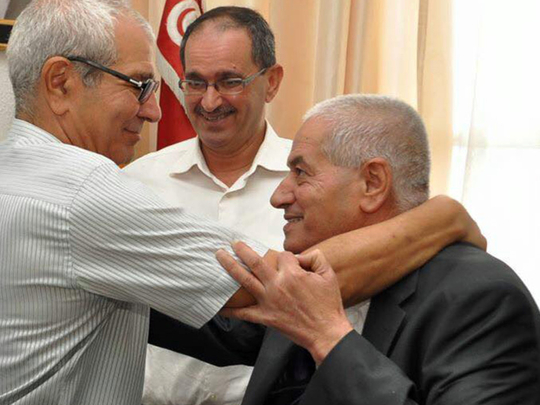
Quite like one of the co-winners last year, the Nobel Peace Prize winners this year were also not from any particularly famous lobby, but rather a loose alliance of civil society groups that helped steer Tunisia towards stability.
“This year’s Nobel Peace Prize was a surprise even to the recipients, a little-known group of activists who brokered a political transition in Tunisia,” said the Chicago Tribune in an editorial. “It was also an inspired choice. The Arab Spring has been so disappointing that Tunisia has been largely forgotten, making headlines only when terrorists kill European vacationers,” the newspaper said, adding: “Neither Tunisia’s job nor the quartet’s is finished. Tunisia remains a leading exporter of recruits for [Daesh, the self-proclaimed Islamic State of Iraq and the Levant] in Syria, and the country’s role as a potential model gives extremists the incentive to destabilise it. So Friday’s prize should serve as a reminder to boost international support for Tunisia’s battered economy. Tunisia’s success will rise or fall above all on the ability of its main political factions to share power and compromise. For making that possible, Tunisia’s quartet richly deserve their recognition.”
Commenting on the prize, the New York Times said: “Certainly the Tunisian coalition of labour unions, business, lawyers and human-rights activists deserves the award for managing to turn their country’s ‘Jasmine Revolution’ away from the brink of civil war ... The Nobel committee has a long tradition of awarding the prize to institutions, individuals or groups for the nobility of what they represent rather than for the efficacy of what they did. The committee broke new ground this year by selecting what is an ad hoc coalition.” At the same time, the paper also sounded a caveat in its editorial, observing that “there is no guarantee that Tunisia, which is not free of political and social strife, will live up to the promise of this year’s award”.
Meanwhile, the Frontier Post in Pakistan — which saw Malala Yousufzai claiming the same award last year — said in an editorial: “Tunisia has come a long way since Mohammad Bu Azizi set himself alight, to the recognition that his nation has received by winning the Nobel Peace Prize. The prestigious award crowns [the group’s] two years of selfless efforts in ushering in a pluralistic culture in a society that was on the brink. From the 2011 Jasmine Revolution to the inset of Daesh violence, it was a tale of failures and setbacks. [The award] is a symbol of hope not only to Tunisians, who stood fast against all odds to usher in a representative dispensation, but also to many other countries in the region that are in turmoil.”
Applauding the Nobel committee for the award, Canada’s Globe and Mail delved into the details of the quartet and its achievements. “In Tunisia, four civil society organisations have persistently worked to keep the country on the path of resolving disputes through politics and law, not violence: The Tunisian General Labour Union, the Tunisian Confederation of Industry, Commerce and Handicrafts, the Tunisian Human Rights League and the Tunisian Order of Lawyers — the national bar association. [The award is] less obvious than some famous diplomat or a head of government from some large country, but the group has been unstinting in developing a national consensus,” the paper said in an editorial.





_resources1_16a31069e4e_small.jpg)






